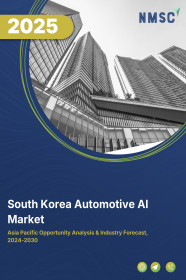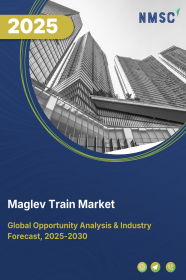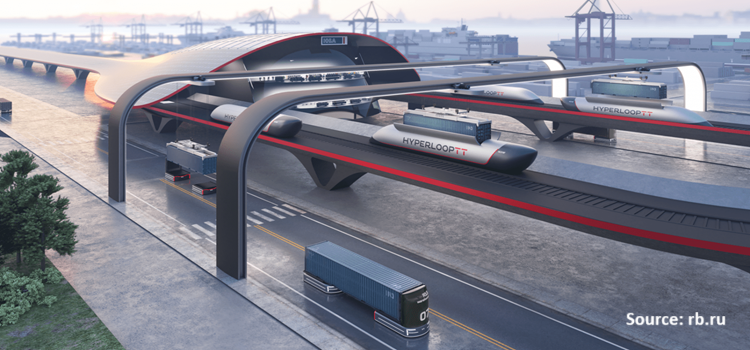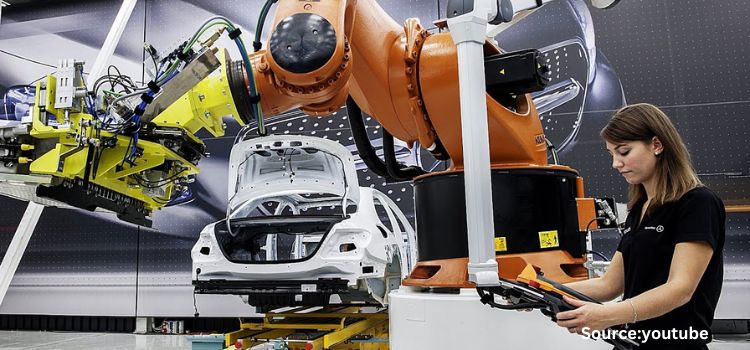
South Korea Automotive AI Market by Component (Hardware, Software, and Services), by Technology (Machine Learning & Deep Learning, Computer Vision, and Natural Language Processing), and by Application (Semi-Autonomous and Fully Autonomous) - Opportunity Analysis and Industry Forecast, 2024–2030
Industry: Automotive & Transportation | Publish Date: 03-Jan-2025 | No of Pages: 101 | No. of Tables: 71 | No. of Figures: 36 | Format: PDF | Report Code : AT1739
US Tariff Impact on South Korea Automotive AI Market
Trump Tariffs Are Reshaping Global Business
Market Definition
The South Korea Automotive AI Market size was valued at USD 202.4 million in 2023, and is predicted to reach USD 1405.9 million by 2030, at a CAGR of 31.9% from 2024 to 2030. Automotive Artificial Intelligence, or Automotive AI, refers to the application of machine learning and artificial intelligence technologies in the design, development, and operation of vehicles and related systems within the automotive industry. Automotive AI consists a wide range of applications, including autonomous driving, advanced driver assistance systems (ADAS), predictive maintenance, natural language processing for in-car voice recognition, and improving the overall efficiency and safety of vehicles. This technology enables vehicles to perceive their surroundings, make decisions, and interact with drivers and passengers. This further enhances the driving experience, safety, and efficiency of automotive systems.
Rising Government Initiatives and Safety Concerns Propel the Market Growth
Governments and regulatory bodies are playing a pivotal role in propelling the growth of the automotive AI market through their emphasis on safety standards and the establishment of regulations. Recognizing the potential benefits of artificial intelligence in enhancing road safety and transportation efficiency, authorities are introducing measures that mandate the inclusion of advanced driver assistance systems (ADAS) and autonomous driving features. These regulations set clear guidelines for testing and certification with addressing crucial aspects such as data privacy and security in the context of AI-driven technologies. International collaboration further leads to standardized frameworks, fostering global adoption and innovation. Additionally, governments offer incentives and subsidies to manufacturers and consumers embracing AI in vehicles, providing economic motivation for the industry.
Increasing Demand for the Electric Vehicles is Driving the Growth of the Market
The surging demand for electric vehicles (EVs) is significantly driving the automotive landscape. Also, the integration of artificial intelligence (AI) is playing a pivotal role in optimizing various sides of electric vehicle technology. AI is at the forefront of battery management, where advanced algorithms monitor and predict battery health, ensuring longevity and reliability. Additionally, machine learning is harnessed to enhance the energy efficiency of EVs, optimizing power usage and improving range prediction accuracy. The optimization of charging infrastructure, personalized user experiences through natural language processing and voice recognition, and the implementation of predictive maintenance contribute to a seamless and efficient electric vehicle ownership experience.
Data Privacy and High Cost Associated with Automotive AI Restrains the Market Growth
Data privacy concerns and high costs are collectively restraining the growth of the automotive AI market. Consumers worry about how their personal data is collected, used, and protected by AI systems in vehicles. This led to demands for stringent data privacy measures. Additionally, the high development and integration costs of AI in vehicles can result in higher vehicle prices. This, in turn, potentially limit market adoption, especially among cost-conscious consumers. Balancing data privacy and cost considerations is crucial for the widespread acceptance and growth of automotive AI technologies.
The Rising Prevalence of Advanced Driver Assistance Systems (ADAS) Create Opportunities for the Market
Advanced Driver Assistance Systems (ADAS) represent a pivotal aspect of automotive safety and convenience, employing sensors and cameras to enhance driving experiences. The integration of artificial intelligence (AI) into ADAS plays a crucial role in transforming these systems into intelligent, responsive mechanisms. AI algorithms, powered by machine learning, analyze real-time data from sensors, enabling features such as adaptive cruise control, lane-keeping assistance, and automatic emergency braking. The future opportunity in this domain lies in the continuous refinement of ADAS functionalities through advancements in AI, promising improved accuracy, responsiveness, and a broader range of capabilities. As the automotive industry continues its pursuit of safer and more efficient driving, the integration of AI into ADAS stands at the forefront, paving the way for the development of increasingly sophisticated and reliable driver assistance technologies. The growing demand for enhanced safety features and regulatory emphasis on advanced technologies in vehicles underscore the immense potential for the automotive AI market within the ADAS segment.
Competitive Landscape
The market players operating in the South Korea automotive AI market include NVIDIA Corporation, Alphabet, Inc., Intel Corporation, Microsoft Corporation, IBM Corporation, Qualcomm, Inc., Tesla, Inc., BMW AG, Micron Technology, Xilinx, Inc.
South Korea Automotive AI Market Key Segments
By Component
-
Hardware
-
Software
-
Services
By Technology
-
Machine Learning & Deep Learning
-
Computer Vision
-
Natural Language Processing
By Application
-
Semi-Autonomous
-
Fully Autonomous
REPORT SCOPE AND SEGMENTATION:
|
Parameters |
Details |
|
Market Size in 2023 |
USD 202.4 Million |
|
Revenue Forecast in 2030 |
USD 1405.9 Million |
|
Growth Rate |
CAGR of 31.9% from 2024 to 2030 |
|
Analysis Period |
2023–2030 |
|
Base Year Considered |
2023 |
|
Forecast Period |
2024–2030 |
|
Market Size Estimation |
Million (USD) |
|
Growth Factors |
|
|
Companies Profiled |
10 |
|
Market Share |
Available for 10 companies |
|
Customization Scope |
Free customization (equivalent up to 80 working hours of analysts) after purchase. Addition or alteration to country, regional, and segment scope. |
|
Pricing and Purchase Options |
Avail customized purchase options to meet your exact research needs. |
KEY PLAYERS
-
NVIDIA Corporation
-
Alphabet, Inc.
-
Intel Corporation
-
Microsoft Corporation
-
IBM Corporation
-
Qualcomm, Inc.
-
Tesla, Inc.
-
BMW AG
-
Micron Technology
-
Xilinx, Inc.

















 Speak to Our Analyst
Speak to Our Analyst





















